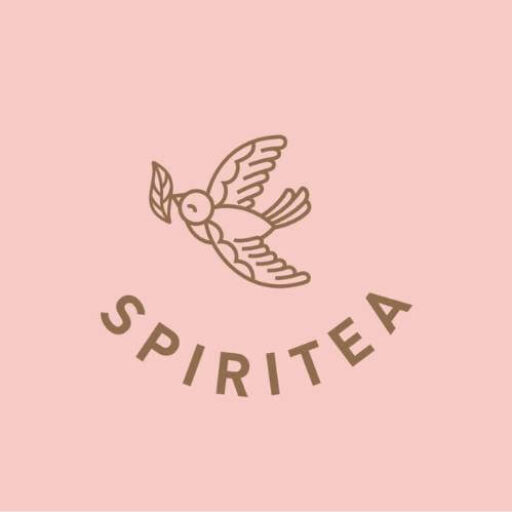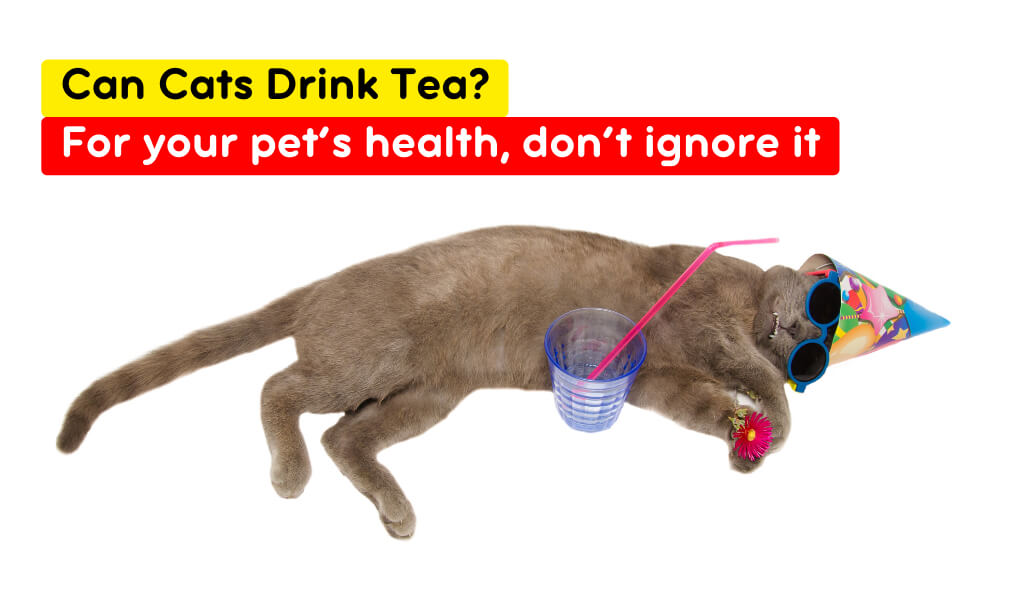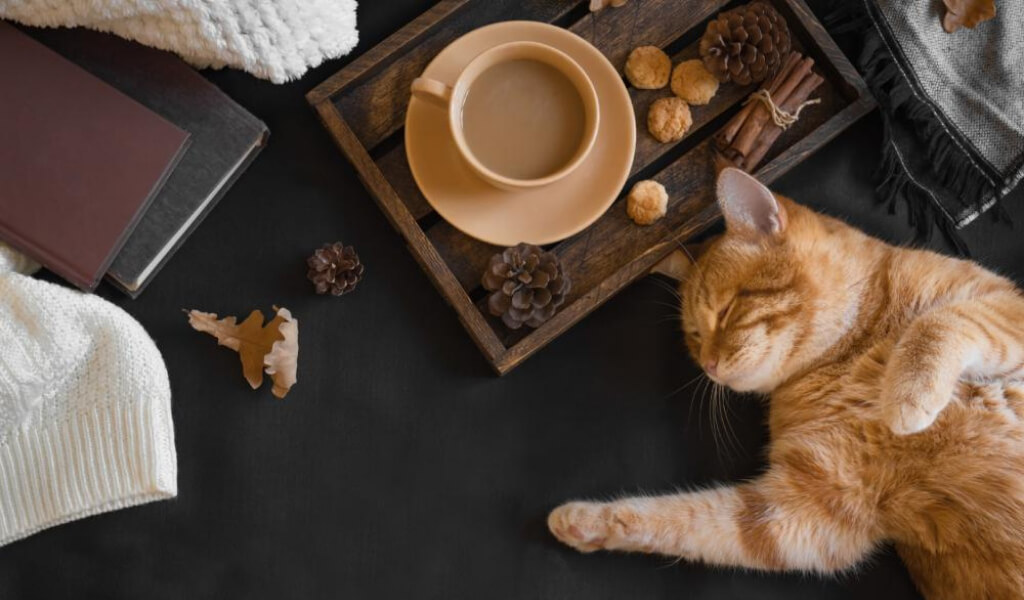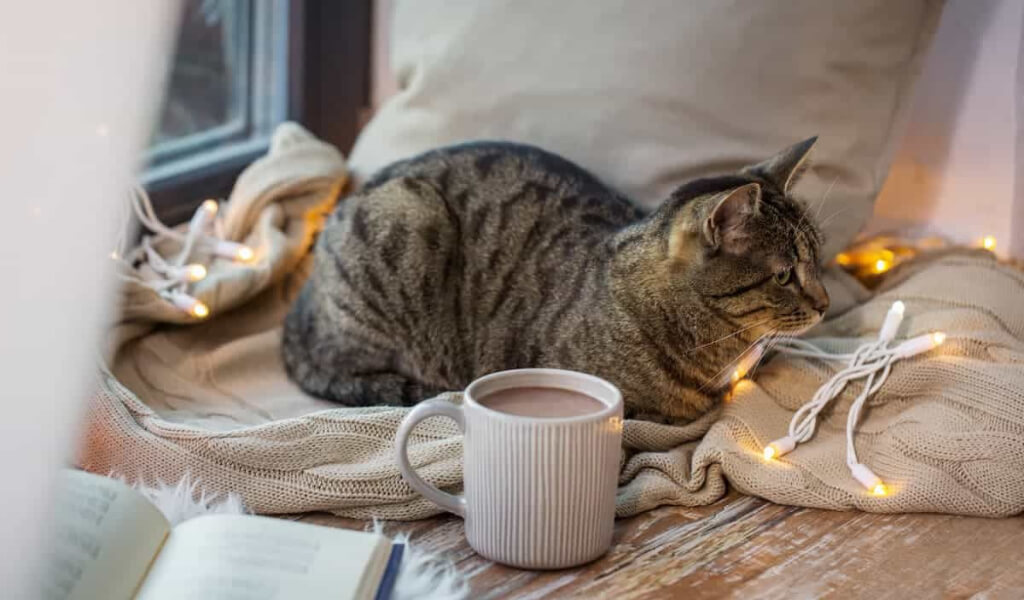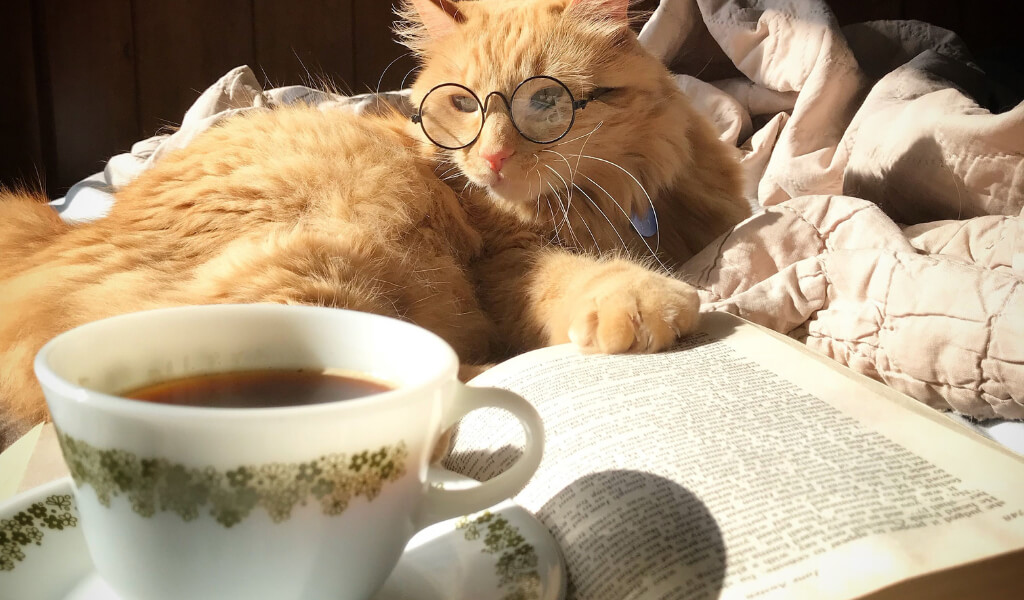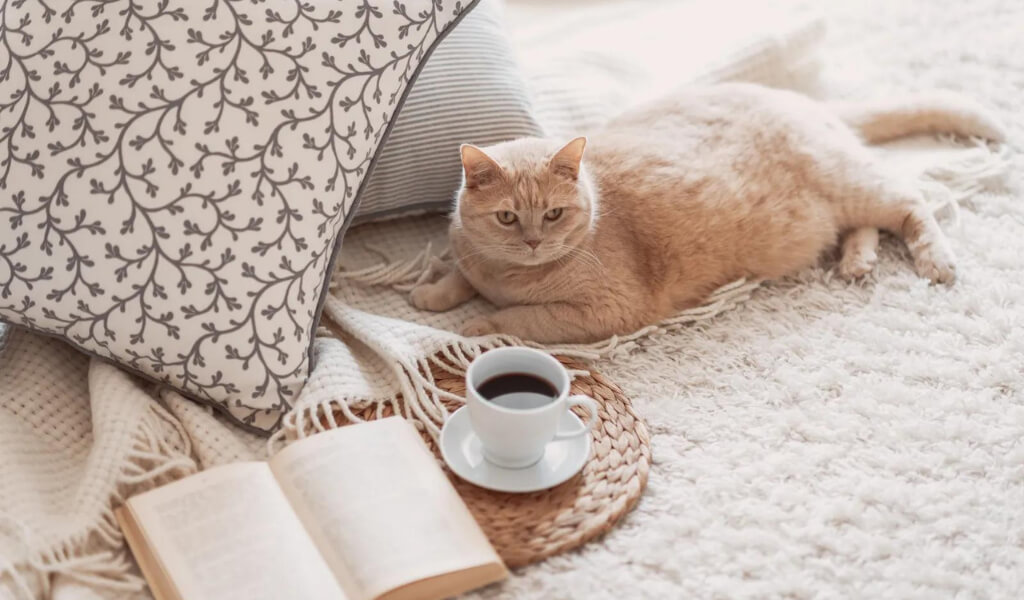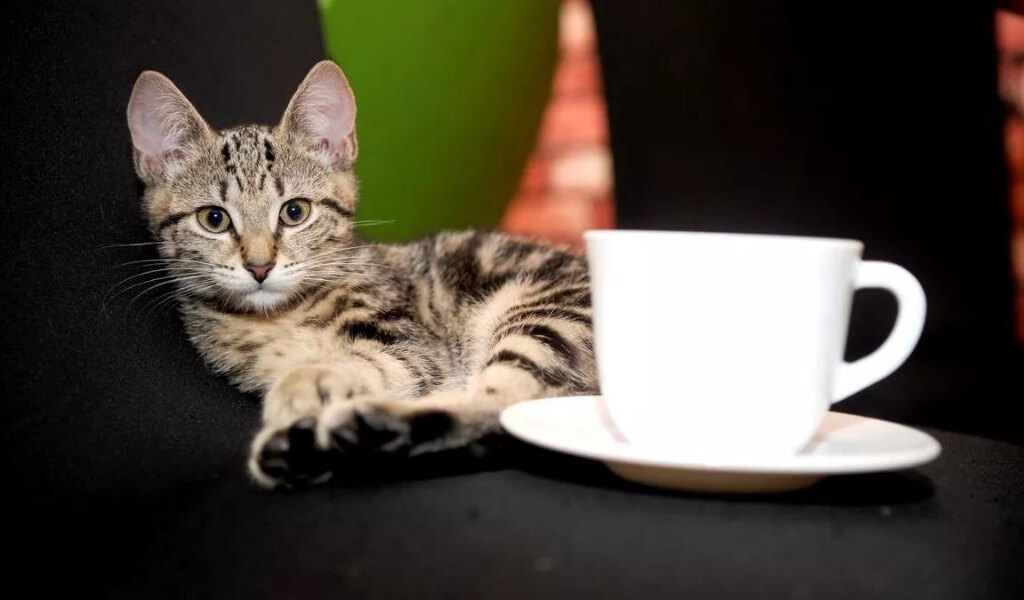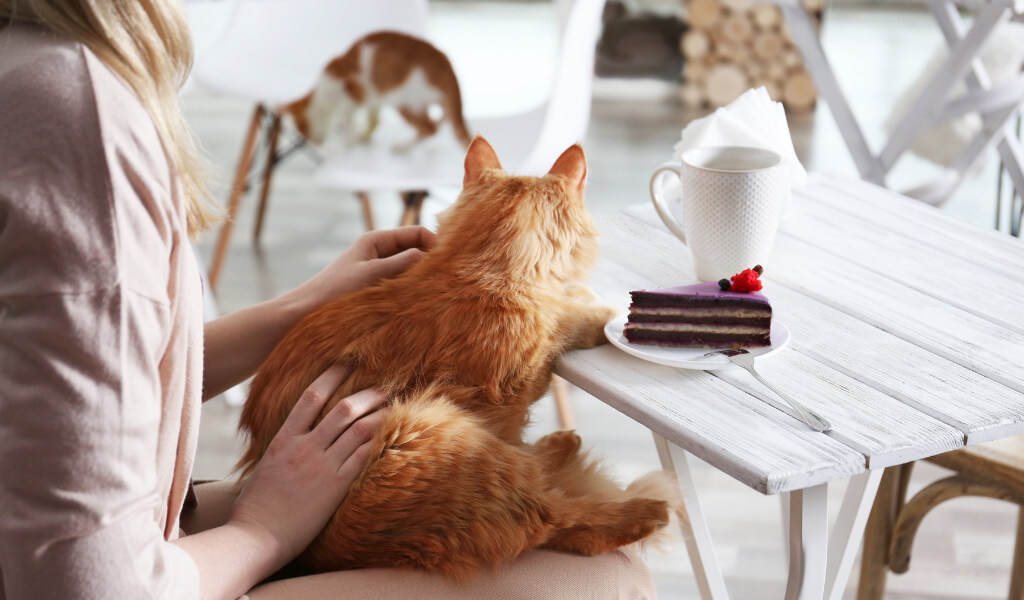“Can Cats drink tea?” I pondered this question one quiet afternoon while sipping my favorite Darjeeling and my cat Whiskers curled up nearby.
But what if Whiskers got curious like our feline friends often do? And what if that curiosity led her to take a few sips from my forgotten teacup?
In this article, we’ll delve into the heart of this question:
We’ll explore whether tea is harmful to our feline companions?
Discuss why it might be bad?
What to do if your furry friend sneaks a sip or two? Are there any signs of caffeine poisoning in cats that we should be aware of?
What are the treatments if Whiskers gets into my morning brew?
Can she safely enjoy a cup of herbal tea instead?
Can Cats drink tea?
The straightforward answer is no. The primary reason behind this is caffeine. Most teas contain caffeine, which, while it can provide a helpful boost to us, can lead to serious health problems for cats.
Teas contain tannins, harmful to cats, causing liver and kidney issues even with a small sip. Choose caffeine-free tea for your cat, but be cautious of other ingredients that may upset their stomach or be toxic.
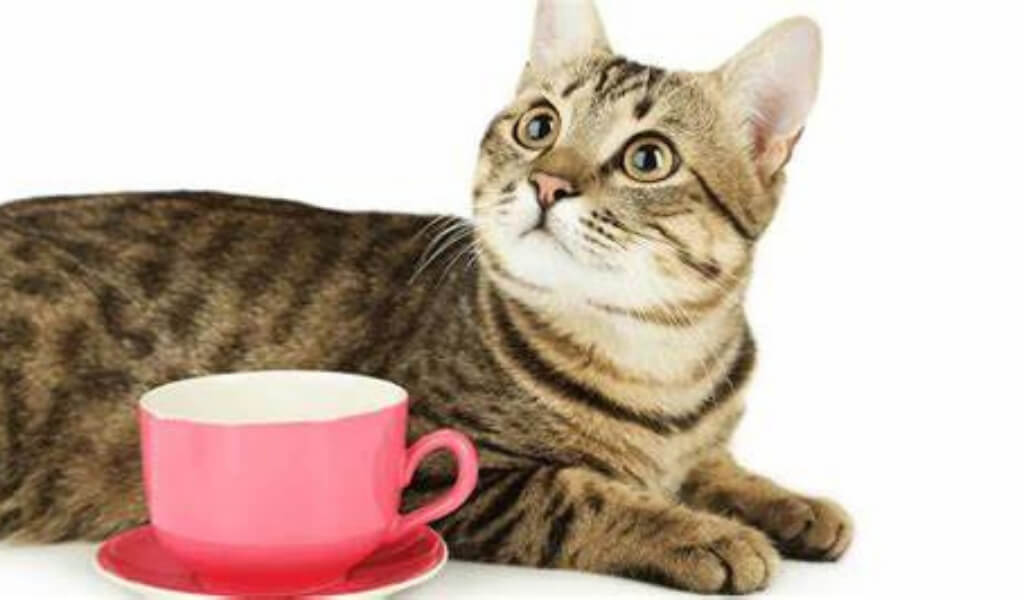
So, when we address the question, “Can a cat drink tea?” the answer, broad as it may be, is a resounding no. But it’s crucial to explore why it’s a no and what makes a seemingly innocuous act of a cat drinking tea a potential danger.
Is tea bad for Cats?
Yes, tea is indeed bad for cats. Drinking tea can increase your cat’s heart rate, exhibit hyperactivity, and become restless. Your otherwise quiet kitty might suddenly start to vocalize constantly. Other symptoms of a cat drinking tea include diarrhea, vomiting, and fever. They might also need to urinate more frequently and experience higher blood pressure and cardiac arrhythmias.
In the most severe cases, excessive cats tea consumption can even lead cats into a coma or cause them to pass away.
But the risk doesn’t stop with caffeinated teas. Even herbal or fruit teas, which may seem like a safer alternative, can contain toxic ingredients for cats.
Such ingredients include citrus, essential oils, and artificial flavors or sweeteners. Even though cats cannot taste sweets, they can still suffer from high blood sugar levels if they consume these sweeteners, leading to obesity and diabetes. In extreme cases, it could even damage their liver.
Many of us enjoy our tea with a splash of milk or cream, but did you know that cats are lactose intolerant?
While the image of cats lapping up a saucer of milk is popular, the reality is that milk and cream can cause stomach cramps, soft stools, and diarrhea in cats. Despite some cats being able to tolerate small amounts of milk or lactose-free cream, it’s best to avoid it altogether.
So, when it comes to cats and tea, the connection could be more dangerous. Both pose significant risks, whether it’s a bag of black tea or a cup of chocolate milk tea.
Read More:
- Can I drink Tea after Tooth Extraction? Comprehensive Explanation
- Chicken Salad Tea Sandwiches Recipes: Ultimate Guide For A Yummy Dish
- Can You Drink Tea While Fasting? 10 Interesting facts are revealed
- Is Tea Bad for Dogs? 3 Health Risks of Tea for Dogs
- How long do Tea Lights Burn? Detailed Explanation
What Should I Do If My Cat Drinks Tea?
If your cat drinks tea, it’s a cause for immediate concern.
I remember one winter morning when I was enjoying my regular Earl Grey. I left my cup on the table for a moment, and when I returned, I found Whiskers lapping up the remnants.
As a responsible pet owner, there are a few steps I took, and I suggest you follow the same if you find your cat drinking tea:
1. Estimate the amount
Firstly, try to estimate how much tea your cat has consumed. A few tiny sips might not be much to worry about, but you should still monitor your cat closely for any symptoms of caffeine intoxication, such as restlessness, hyperactivity, or frequent urination.
2. Look for symptoms
Pay close attention to any unusual behavior or symptoms. If your cat displays concerning signs or if you suspect that your cat has managed to consume a significant amount of tea, it’s time to take action.
3. Call the vet
Contact an emergency veterinarian immediately if your cat shows any signs of discomfort. Explain the situation in detail so they can provide appropriate guidance.
4. Follow the vet’s instructions
Depending on the severity, your vet might suggest a range of remedies. These could include an intravenous drip, activated charcoal to absorb the toxins, or even inducing vomiting.
5. Immediate veterinary attention
If your cat shows severe caffeine intoxication, take them to the vet immediately. Time is of the essence, and your quick response can be pivotal to your cat’s survival. Severe symptoms could lead to unconsciousness, dehydration, seizures, or death.
Some cats can tolerate tea due to early exposure, but it’s risky. Cats, especially kittens, are extremely sensitive to even small amounts of caffeine, so it’s best to avoid giving them tea.
Let’s not forget that cats are not humans. Their liver and kidneys are different and lack the enzymes needed to break down and eliminate certain substances found in tea. Therefore, maintaining your cat’s water intake and not allowing them to drink tea is the safest action to protect their health.
The relationship between Caffeine and cats
Caffeine and cats simply do not mix. I can’t stress this enough: cats should never have caffeine from tea or any other source. A little bit can make them sick, and an excessive amount can lead to serious health problems.
To give you an idea of just how delicate the situation can be, let’s put things into perspective:
An average cat, weighing 8 pounds, can become toxic with just 80 milligrams of caffeine, which is approximately 10 milligrams per pound of their body weight. A typical cup of black tea holds around 50 milligrams of caffeine, meaning even a small amount can harm some cats. Therefore, it’s safest to avoid giving caffeine to your cat entirely.
Signs of Caffeine Poisoning in Cats
If a cat ingests caffeine, you may observe certain symptoms of caffeine poisoning. These include:
- Hyperactivity
- Restlessness
- Agitated behavior
- Panting
- Elevated heart rate
- Vomiting
- Tremors and heart palpitations (in severe cases)
As a cat owner, it’s crucial to recognize these symptoms and respond quickly. Symptoms can appear within 30 minutes of ingestion and last between six to twelve hours, depending on the size and health of the cat and the amount of caffeine ingested.
How to treat caffeine Poisoning in Cats
Should your cat accidentally ingest caffeine, early intervention is key. If caught early enough, a vet can induce vomiting to remove the caffeine from the cat’s gastrointestinal tract.
However, if symptoms have developed, your cat will likely require intravenous (IV) fluid therapy. This treatment helps to flush the caffeine out of the cat’s system.
Recalling the Whiskers incident, I sipped from a mug with an enamel pin design. Watching him reach for it made me realize how easily cats can be lured by curiosity. It emphasized the need to keep caffeinated drinks and objects that may contain traces of them out of their reach.
In conclusion, ensuring a caffeine-free environment for your cat is crucial for their well-being. Even the smallest slip can lead to a potentially harmful situation, so it’s better to be safe than sorry.
Can cats drink herbal tea?
Is herbal tea for cats a safer alternative to regular tea? Indeed, some herbal teas can be a safe choice for your feline friend. While we must avoid all kinds of caffeinated teas, certain herbal teas may be an exception. However, it’s crucial to be mindful of the ingredients and ensure no harmful substances are present.
Herbal teas, like catnip or cat claw tea, can sometimes offer benefits. These are particularly popular among cat parents. But even then, not all cats react the same way, and some might not tolerate them as well as others. Remembering that what suits one cat might not necessarily suit another is essential.
Always check for caffeine in tea bags, even herbal ones. Brew tea without sugar or milk. While green tea is seen as healthy for cats, it can harm them because of its caffeine.
When considering herbal tea for cats, it’s important to consult your vet first. This way, you can be sure you’re not inadvertently putting your beloved pet at risk. The well-being of our feline friends always comes first.
Benefits of Herbal Tea for Cats
Chamomile, echinacea, calendula, licorice root, and dandelion are anti-inflammatory and can help boost a cat’s immune system. Dr. Wooten says these herbs can also aid cats with itchy skin.
Remembering a chilly winter evening, I prepared a cup of chamomile tea. Curiosity was piqued, and my cat approached with eyes full of interest. With a quick chat with my vet and a go-ahead, I prepared a tiny, diluted, cooled-down portion for her. Ever since it’s become a calming ritual for both of us, and it has visibly improved her dry, itchy skin.
Conclusion
Being a cat lover and tea enthusiast, I often wonder if it’s okay for cats to have tea. The verdict: Traditional caffeinated teas are a big no-no, but some herbal teas can be safe in moderation.
Remember, it’s always best to check with your vet before introducing anything new to your cat’s diet. Let it be after a professional nod if you’re considering giving your cat herbal tea.
But let’s face it – nothing beats fresh water for our furry buddies. Tea is a treat for humans, and our cats have their delights. After all, their health is our priority, right? So, let’s keep our tea sessions human-only and find other fun ways to bond with our little pals.
Thanks from Spiriteadrinks.com
FAQs
Can cats drink decaf tea?
Even though decaf tea has less caffeine, it’s still not advisable for cats to drink it. There may be other ingredients present that could be harmful to your cat.
Can cats drink herbal tea?
Some herbal teas are safe for cats in small, diluted quantities, but always consult your vet first. Be aware that not all herbs are safe for cats.
Can cats drink chamomile tea?
Chamomile tea can be safe for cats when appropriately diluted, but it’s always best to consult your vet before introducing it into their diet.
Can cats drink Earl Grey tea?
No, cats should not drink Earl Grey tea. It contains caffeine and the essential oil bergamot, both of which can be harmful to cats.
Can cats drink peppermint tea?
While some cats may not have adverse reactions to peppermint tea, it’s best to err on the side of caution and avoid giving it to your cat without consulting a vet.
Can cats drink tea with milk?
No, it’s not recommended for cats to drink tea with milk. Most cats are lactose intolerant, and the milk can cause digestive issues. Plus, the caffeine in tea can be harmful to cats.
I’m Shanna, creator of Spiritea Drinks. I’m all about teaching people to grow their own food, tea, cook what they harvest, and eat with the seasons.
